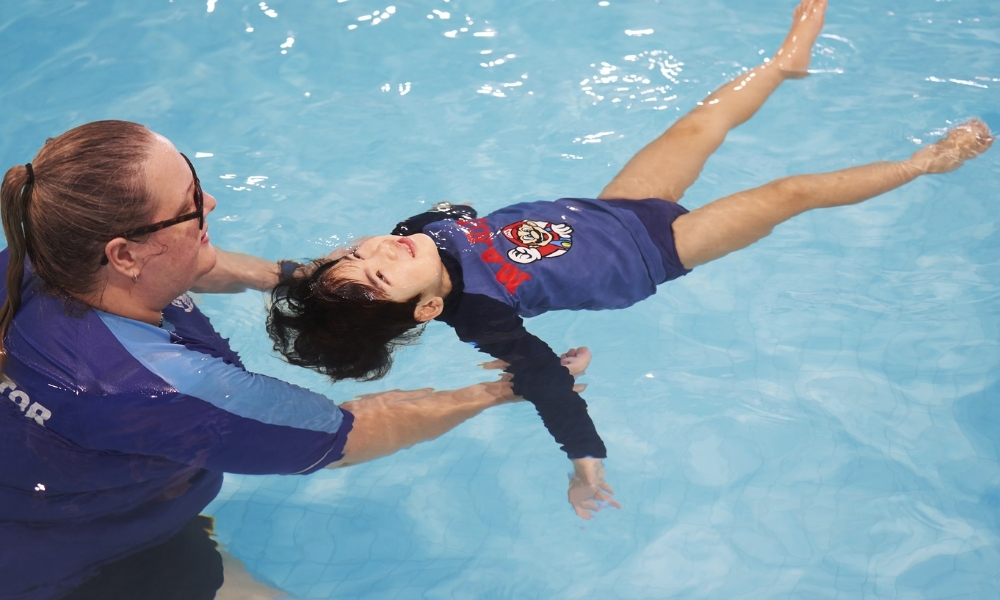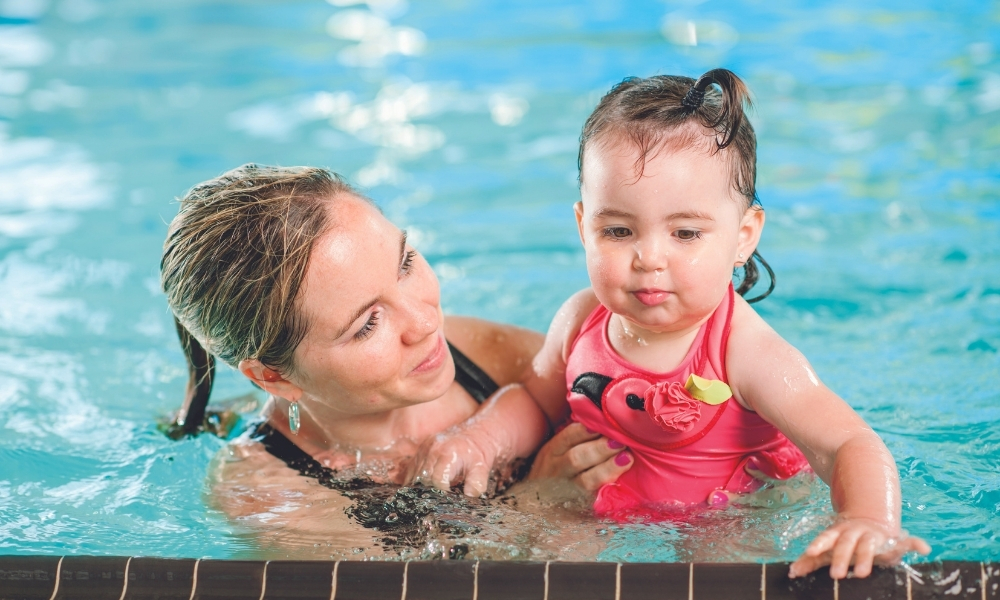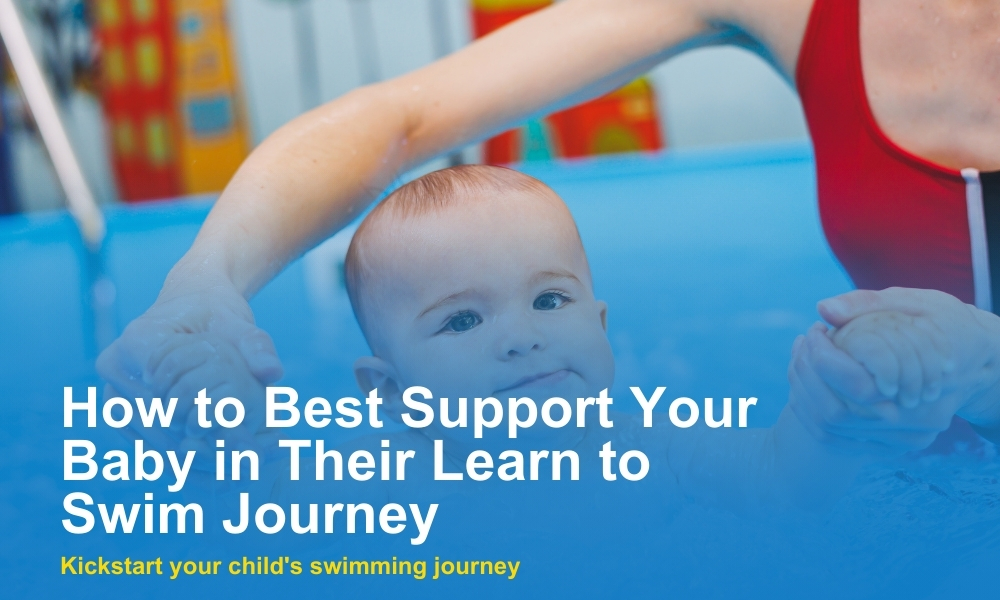Learning to swim can oftentimes feel like a long and difficult journey. From the numerous strokes, to gaining water confidence, to the physical demands, swimming isn’t easy. That’s why at Shapland Swim Schools, we believe that’s all the more reason to start swimming early. In this article, we’d like to introduce our baby swim classes as a great way to kickstart your swimming journey.
Choosing The Right Swimming Class
One of the best ways to ensure your child enjoys swimming is to choose the right swimming class. There are a few ways you can do this.
Research
Conducting prior research of swimming schools is a great way to see which one aligns with you and your child’s needs. Aspects like instructor qualifications, class structure, and the quality of the swimming pool water itself can each determine whether your child ends up loving or hating their first lesson.
Feedback
Finally, judging a swimming school on the feedback and testimonials of other parents is an excellent way to get first-hand accounts from parents who have enrolled their child in a school. This information is usually displayed on a school’s website. Read Shapland Swim Schools’ Testimonials to find out more!

How Do You Prepare Your Baby Before Swimming Class?
To increase the chances your child enjoys their first baby swim class while reaping all the benefits of swimming for babies, there are a couple things parents can do at home.
Bathtime Activities
Having a consistent bathtime routine that’s fun can help your baby grow to love the water. Activities like sing-alongs, peek-a-boo, and playing with floating toys are great!
Raising Children even recommends using bathtime as an occasion for babies to play, learn, and build relationships.
Getting Used To Water
Besides the activities mentioned above, bathtime is also great for getting your baby used to the sensation of water. Gently pouring water over their head is one effective method to get babies comfortable with water and prime them for future swimming classes.
How Can You Support Your Baby During Swimming Classes?
While qualified instructors will know how to teach your baby to swim, there are a few ways you can support your child during their lesson.
Be Present At Your Child’s Class
Being present at your child’s class is enough for them to feel safe and supported during lessons. It also shows that you care about their development as swimmers, which is a great motivator for them.
Encourage But Don’t Be Pushy
Encouragement is needed whenever your child feels down or unmotivated. However, this does not mean being pushy and forcing your child to swim. Doing so is one of the quickest ways to destroy your child’s enjoyment of the activity.
Avoid Comparing and Judging
Whether learning to swim, ride the bicycle, or do math, every child has strengths and weaknesses. This means they learn at their own pace. Comparing and judging your child to siblings or other children is never the right thing to do.
Be Patient And Adaptable
Rather than comparing and judging, it’s much better to be patient and adaptable. Doing so demonstrates to your child you’re not putting any pressure on them. Rather, it shows love and commitment.
Get Excited Before Every Lesson
Finally, getting excited before every lesson is the perfect way to build-up to baby swim classes. When your child sees their parents getting excited about something, chances are that excitement will rub off on them too. Again, while parents won’t be expected to know how to teach their baby to swim, they can at least teach their babies why swimming is great!

Reinforce Your Baby’s Swimming Skills At Home
Now you know how to support your baby’s swim classes, let’s find out how you can reinforce what they learned at home. Before doing any of these, it’s important to remember not to be pushy. This will only be counter-productive.
With A Pool
If you’ve got a pool at home you can always have your child practicing whatever they’ve learned in class. However, if they don’t feel like it, just let them play. They will learn swimming techniques and develop water confidence in class so there’s no need to have them do so at home.
Without A Pool
Even without a pool, a lot’s possible. Again, bathtime can be used as a means of spending more time in the water. Besides this, simply having your child take showers can get them comfortable with having water in and around their head, ears, eyes, nose, and mouth. This improves breath control.
Consider Shapland Swim Schools For The Best Learning Program For Your Baby
At Shapland Swim Schools, we pride ourselves in delivering the best learning programs for your baby. To begin, let us walk you through what’s available with our very own Babies Program.
The Babies Program is designed for children between 5 months to 2 years old. In order to effectively teach babies to swim, we focus on four key objectives.
- We ensure your baby develops a positive relationship with water. Our qualified instructors know how to teach babies to swim in as safe and fun an environment as possible.
- We only have 3 babies in every class. This ensures our instructors can focus on each parent and child individually.
- With over 8 decades of teaching, we understand how to best introduce babies to water and ensure they love every minute.
- Finally, we teach swimming with a program that operates with minimal adult interference. We want every baby leading their own way, learning just as naturally as they do on land.
Besides the Babies Program, parents are also encouraged to check out our Free Baby Home Development Program. This is our comprehensive guide that helps parents prepare their child for future swimming lessons!

